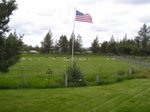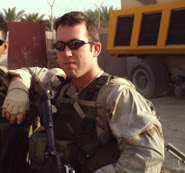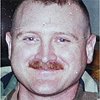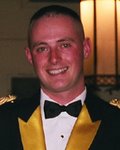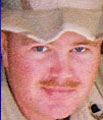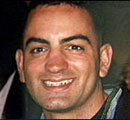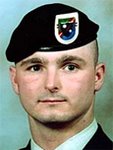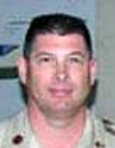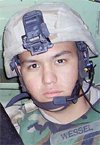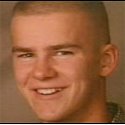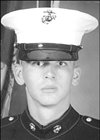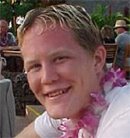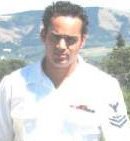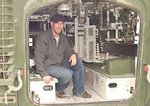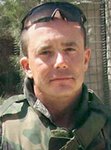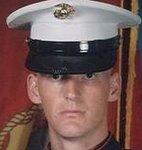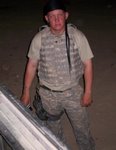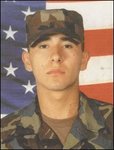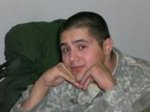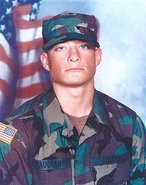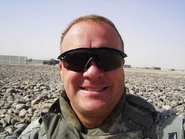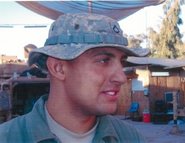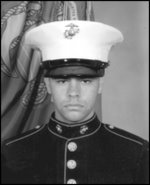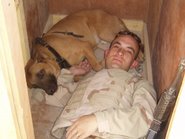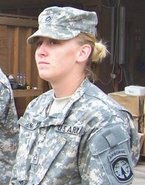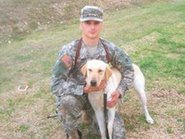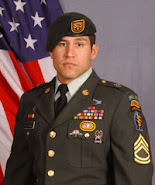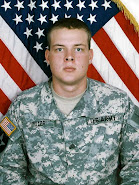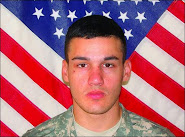 A carousel in Habbaniyah's tourist village rests dormant and in a state of disrepair, April 6, but provides testament to better times in the once-popular vacation and honeymoon spot. Families and newlyweds frequented the resort in the 1980s, and tourist village continued to attract tourists throughout the Middle East until the start of Operation Iraqi Freedom in 2003. Some of the necessary repairs and planning have begun with help from Marines with Charlie Battery, 1st Battalion, 11th Marine Regiment, 1st Marine Division - deployed to Camp Taqaddum with the 1st Marine Logistics Group - but Marine and Iraqi officials said further improvements to the existing facilities must be made to bring the resort back to its former prominence.
A carousel in Habbaniyah's tourist village rests dormant and in a state of disrepair, April 6, but provides testament to better times in the once-popular vacation and honeymoon spot. Families and newlyweds frequented the resort in the 1980s, and tourist village continued to attract tourists throughout the Middle East until the start of Operation Iraqi Freedom in 2003. Some of the necessary repairs and planning have begun with help from Marines with Charlie Battery, 1st Battalion, 11th Marine Regiment, 1st Marine Division - deployed to Camp Taqaddum with the 1st Marine Logistics Group - but Marine and Iraqi officials said further improvements to the existing facilities must be made to bring the resort back to its former prominence.
 Habbaniyah tourist village, Iraq, has seen a recent influx of vacationers, a huge improvement from last year. Once a popular vacationing area in the 1970's and 1980's, it quickly lost its appeal as it became a refugee camp for Iraqis fleeing the sectarian violence in Baghdad and Fallujah after the start of Operation Iraqi Freedom in 2003.
Habbaniyah tourist village, Iraq, has seen a recent influx of vacationers, a huge improvement from last year. Once a popular vacationing area in the 1970's and 1980's, it quickly lost its appeal as it became a refugee camp for Iraqis fleeing the sectarian violence in Baghdad and Fallujah after the start of Operation Iraqi Freedom in 2003.Returning Marine Unit Notes Increased Vacationers in Local Iraqi Tourist Village
2nd Marine Logistic Group Public Affairs
Story by 2nd Lt. Michele Perez
April 23, 2009
HABBANIYAH TOURIST VILLAGE, Iraq - This time last year, the scene at the once popular vacation spot in western Iraq, Habbaniyah Tourist Village, was bleak. The village was nearly empty, and traffic of visitors and vacationers was negligible. Thoughts of the area regaining its luxurious status it once had in the 1970s and 1980s were distant thoughts after it became a haven for refugees fleeing the sectarian violence of Baghdad and Fallujah after the start of Operation Iraqi Freedom in 2003.
A March 2008 Reuters news article reported that "after years of war and sanctions, all that remains of the village's once lush gardens is dirt and scrub...rusted carousel horses seem suspended in the air, and eerie headless elephants are all that's left of another fairground ride."
Today, only a year later, Marines and Sailors with a detachment of the 1st Battalion, 8th Marine Regiment, the security force for Camp Al Taqaddum, Iraq, have witnessed firsthand a complete turnaround in the Habbaniyah Tourist Village. HTV has seen a recent upward trend of visitors with the numbers racking up to 4,000-5,000 people a weekend.
The 1st Battalion, 8th Marine Regiment last deployed to Ramadi, Iraq from October 2007 to March 2008. Maj. Christian M. Rankin, 1/8 executive officer and the security force detachment commanding officer, says the success in HTV came as no surprise to him and his Marines.
"There was never doubt in our minds that victory over the insurgency would be achieved so long as we persevered, stuck by our Iraqi partners, and stayed true to our principles," Rankin said. "We all understood that at some point, the insurgency would be defeated because they had absolutely nothing to offer the Iraqi people."
According to Rankin, the success in HTV serves as further proof that the people of Al Anbar Province have rejected the goals, aims and ideology of al-Qaida and other terrorist groups. Instead of focusing on dodging attacks and violence, the local populace has shifted their focus to commerce and vacationing, as they travel throughout the province to visit the newly reinstated tourist destination. He has complete confidence that the recent success of HTV will spread to other regions throughout Iraq.
"Where there was once violence and murder, we now have children and their families picnicking and enjoying the beach in a safe, peaceful environment," Rankin said. "People now realize there are alternatives to living in fear... I am supremely confident the success of places like HTV will be replicated everywhere."
HTV has all of the same attractions we would expect to see at any other resort town: its beach front has a boardwalk, food vendors, playground, amusement rides and a hotel overlooking the water.
The HTV Park Store is a staple in the village and is seated snuggly between the shore and the resort. The store is poolside and has several patio tables and umbrellas lining the front window. Recently, the storefront was filled with dozens of children listening to music and taking in the sights.
Fera Mezhir Hamed, the store owner, says his business has increased by at least 30 percent over the past year. Hamed attributes the increase in visitors to better accessibility to the area.
"Last year you need a badge to get through to HTV and we talked to [local authorities]," Hamed said.
He added that an agreement was made to lessen the restrictions on who could get into HTV.
The focal point in the village is the hotel, which stands at five stories high and has approximately 200 rooms.
Hamed Najem Al-Khelefowi, a worker in the food and beverage department, serves guests in the hotel lobby. Al-Khelefowi has been in the area since 2002 and says things are better now than he ever remembers.
"Business has been very good." Al-Khelefowi said. "This year is better... very nice, very beautiful year."
He stood behind the counter with a huge smile on his face as he talked about the improved situation in the area and how a normal flow of visitors has returned to the hotel. Initially, a joint effort led by the Iraqi army, Iraqi police and coalition forces helped increase the safety in the area. But now the IPs are solely responsible for providing security, according to Al-Khelefowi.
"The IPs assist in traffic, make everything more organized," he said. "Some people act up, so they move them."
The constant presence of the Iraqi Police has made the area safer, according to Al-Khelefowi. He is also confident that the local police force will be able to maintain the security once the coalition forces leave.
"Yes, of course, absolutely," said Al-Khelefowi. "They can do the job when the coalition forces leave."
The general manger of HTV, who has a 25-year career working in the village, is very excited about the area's prospects for the future. Hameed A. T. Aladai recently returned to reassume his position after he was ran off November 2005 following insurgent death threats.
"This is my life," Aladai said. "Always my dream to get back."
Now that he's back, he has noticed a dramatic change in tourist activity from what he remembers a few years ago when HTV became a safe haven for refugees from Fallujah and Baghdad.
"2004, 2005 no tourist traffic," Aladai said. "Absolutely nothing ... not a chance for there to be tourist attractions, a lot of military traffic [and tourists] could not get through."
In fact, Aladai explains that the situation was so bad the resort was on the verge of closing over the last three years. He attributes the recent turn of events to the stable security situation in the area and the trust the local populace started to gain in their security forces.
"The security was unstable, especially in '05,'06 and '07. These were very difficult times for us," Aladai said. "The security is the main reason [for the improvement]. People started to trust coalition [forces], trust IPs and the Iraqi army."
Aladai wishes that one day he will see the same traffic as the '80s, but is very happy with the recent turn of events. He recognizes the coalition forces for the part they played in setting the improved conditions in motion.
"I have to thank [the] coalition," Aladai said. "[They] helped provide safety, projects, make things happen...dreams real."
Although the stability and security situation in Al Anbar province is new and still flourishing, the Marines and Sailors of 1/8 who were here during the height of the insurgency in 2007 and are now back in 2009, are confident the success in the region will be long-term as they carry out their new mission from aboard Camp Al Taqaddum, Iraq.














































